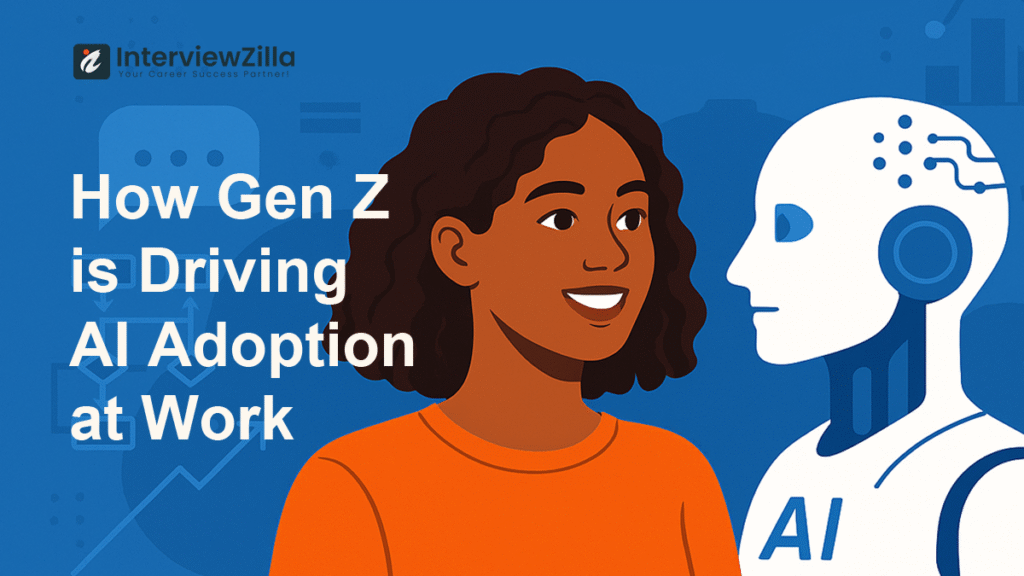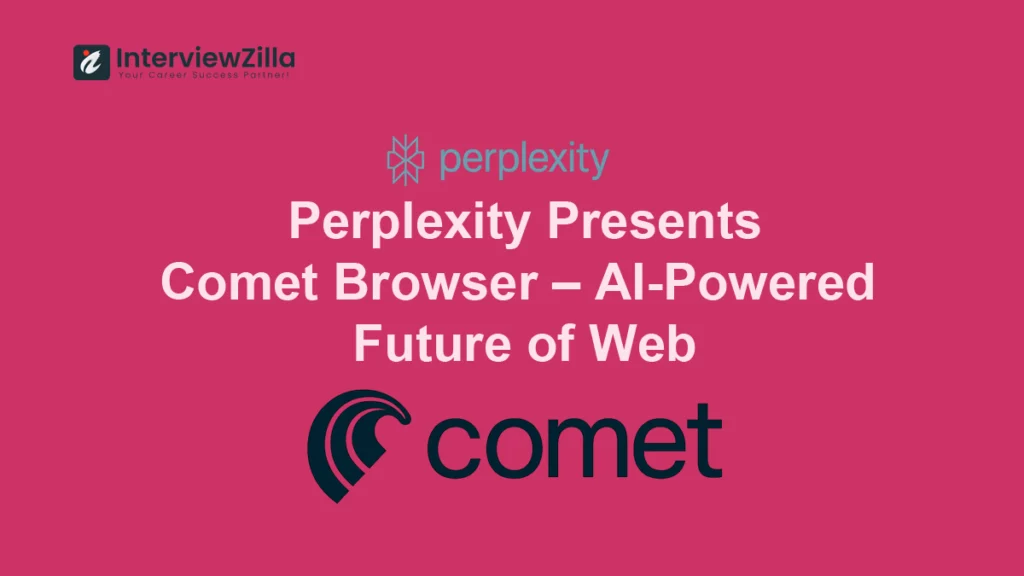Artificial Intelligence isn’t just reshaping industries—it’s reshaping workplace culture. And leading the charge isn’t senior leadership or IT departments—it’s Gen Z. This younger generation of professionals is setting the tone for how AI tools are adopted, experimented with, and embedded into daily workflows. Companies across the US, India, and globally are feeling the ripple effects. The way Gen Z approaches AI is more than just about efficiency—it’s about identity, culture, and expectations of how modern work should be structured.
Gen Z: The First AI-Native Workforce
Unlike millennials or Gen X, Gen Z grew up surrounded by AI-powered experiences. Recommendation engines on YouTube, predictive text on smartphones, and chatbots in customer service were all part of their daily routines. That familiarity has made them AI-native employees. They view tools like ChatGPT, MidJourney, GitHub Copilot, and Claude not as novelties but as extensions of their workflow.
A survey by The Economic Times highlighted that Gen Z professionals are the most enthusiastic adopters of AI compared to older colleagues. While some senior professionals still hesitate due to security or ethical concerns, Gen Z pushes forward, learning by doing. This inversion of knowledge flow—where younger employees mentor older ones on AI—is reshaping office dynamics.
For employers, it’s a double-edged sword: exciting innovation potential, but also a challenge to manage knowledge gaps between generations.
Cultural Shifts Powered by AI
AI isn’t just another tool—it’s driving cultural change across industries. Some of the key shifts include:
- Flattened hierarchies: Junior employees with strong AI expertise often become go-to resources, influencing strategy in ways that were previously reserved for senior staff. This dynamic is democratizing workplaces.
- Faster collaboration: Teams now rely on AI for brainstorming ideas, generating content drafts, and analyzing datasets. Workflows are more iterative, and productivity is accelerated.
- Remote-first expectations: Gen Z expects hybrid and remote work environments to be augmented by AI assistants, from automated scheduling to smart project management. Tools like Notion AI and Slack GPT are becoming baseline expectations.
This cultural reset means companies must adapt not only to new tools but also to new norms of leadership and collaboration.
The Rising Value of Soft Skills
Here’s the thing: as AI automates repetitive or technical tasks, soft skills are becoming more valuable than ever. Communication, critical thinking, adaptability, and creativity are skills AI can’t replace—but AI makes them even more important.
Employers are now searching for professionals who can:
- Translate AI-generated insights into actionable business strategies
- Apply empathy in customer-facing interactions where automation falls short
- Lead teams where both AI tools and humans work hand-in-hand
LinkedIn’s 2025 Workplace Report shows rising demand for soft skills alongside AI fluency. Professionals who combine technical AI know-how with emotional intelligence will find themselves in the strongest career positions.

The Ethical Imperative: Why Gen Z Cares More
Gen Z isn’t just focused on speed and automation—they’re also the most vocal generation about ethical AI use. Transparency, fairness, and accountability are high on their list of expectations. Many younger employees ask hard questions about algorithmic bias, data privacy, and the environmental cost of large-scale AI models.
This creates a challenge for companies that want to move fast with AI adoption but must also meet rising ethical expectations. Those who fail risk losing not just customers, but also talent. According to SSI People’s Tech Trends Report, younger employees are more likely to leave companies that don’t align with their values around technology.
What It Means for Professionals
If you’re entering or already working in the IT job market, here’s what this trend means for you:
- Learn AI tools deeply, but don’t stop there—focus on how they integrate into business goals.
- Develop soft skills like leadership, communication, and creativity, which will future-proof your career.
- Stay ahead by building awareness of ethical AI frameworks and being ready to discuss them in interviews or project planning sessions.
For example, a data engineer who can automate workflows with AI and explain the fairness risks in AI-driven hiring systems becomes much more valuable than someone who only knows the technical side.
What It Means for Employers
For organizations, this cultural transformation calls for serious adjustments:
- Training programs must evolve: Upskilling can’t just be about teaching the mechanics of tools—it must include critical thinking, ethics, and collaboration.
- Reverse mentorship is real: Employers should actively create environments where Gen Z can mentor older colleagues on AI practices, creating mutual respect across generations.
- Culture must adapt: Companies should reward not just productivity, but also responsible and creative uses of AI.
Final Thoughts
The future of work isn’t being dictated by top executives—it’s being shaped from the bottom up by Gen Z. They are redefining how AI is used, how teams collaborate, and what values companies must stand for. The businesses that adapt will thrive in this new landscape, while those that resist risk being left behind both technologically and culturally.
For more career insights on AI, IT jobs, and workplace culture, visit InterviewZilla and explore our latest guides. Staying ahead means not just knowing the tools—but understanding the people shaping how those tools are used.


